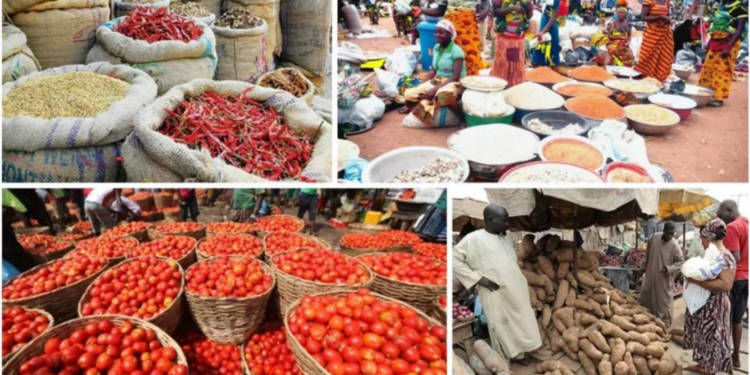Nigeria’s headline inflation rate rose to 34.80% in December 2024, up from 34.60% in November 2024, a slight increase of 0.20% from the November 2024 figure of 34.60%, largely attributed to heightened demand for goods and services during the holiday season.
In December 2024, the headline inflation rate experienced a month-on-month change of 2.44%, reflecting a decrease of 0.20% from the November 2024 rate of 2.64%. This suggests a modest slowdown in the pace of price increases between November and December 2024.
Also, in December 2024, the food inflation rate was recorded at 39.84% on a year-on-year basis, reflecting an increase of 5.91% from the rate of 33.93% recorded in December 2023.
Food inflation has been driven by rising prices of various items, including yam, water yam, sweet potatoes, beer, guinea corn, maize grains, rice, bread, cereals, and fish, among others.
- Advertisement -
The surge in food and commodity prices has reached alarming levels, as Nigerians confront what may be the most severe cost of living crisis experienced since the nation gained independence more than sixty years ago.
Upon President Bola Tinubu’s inauguration in May 2023, the nation’s inflation rate stood at 22.41%. By December 2024, this rate had surged dramatically to 34.8%, reflecting an increase of over 12%. Analysts have linked this significant rise to Tinubu’s dual policies of eliminating the petrol subsidy and unifying foreign exchange rates.
During a joint session of the National Assembly on December 18, 2024, Tinubu unveiled budget estimates amounting to ₦49.7 trillion. He expressed his administration’s goal of reducing the inflation rate to 15% by 2025, a target that many economists have characterised as ambitious and overly optimistic.









